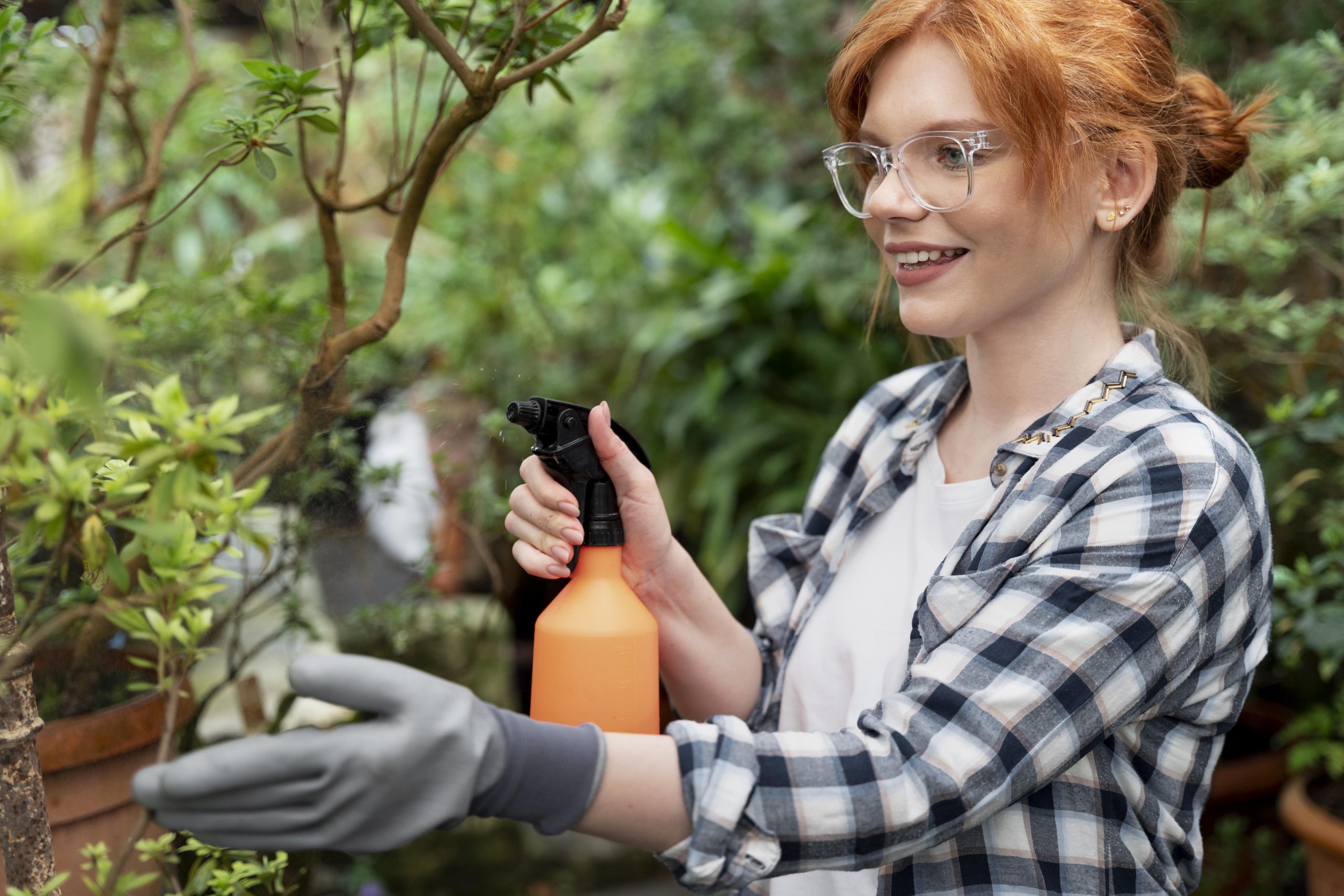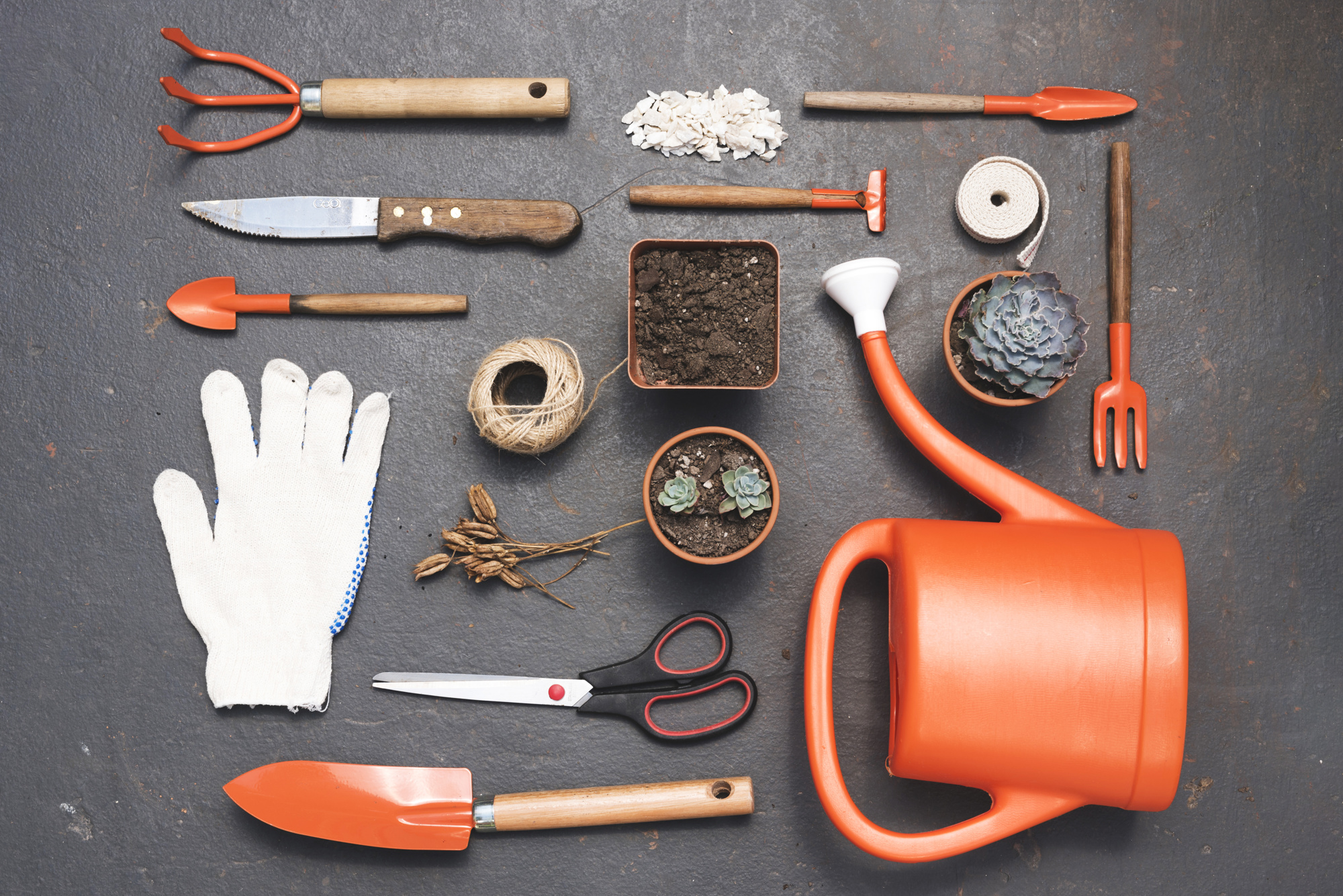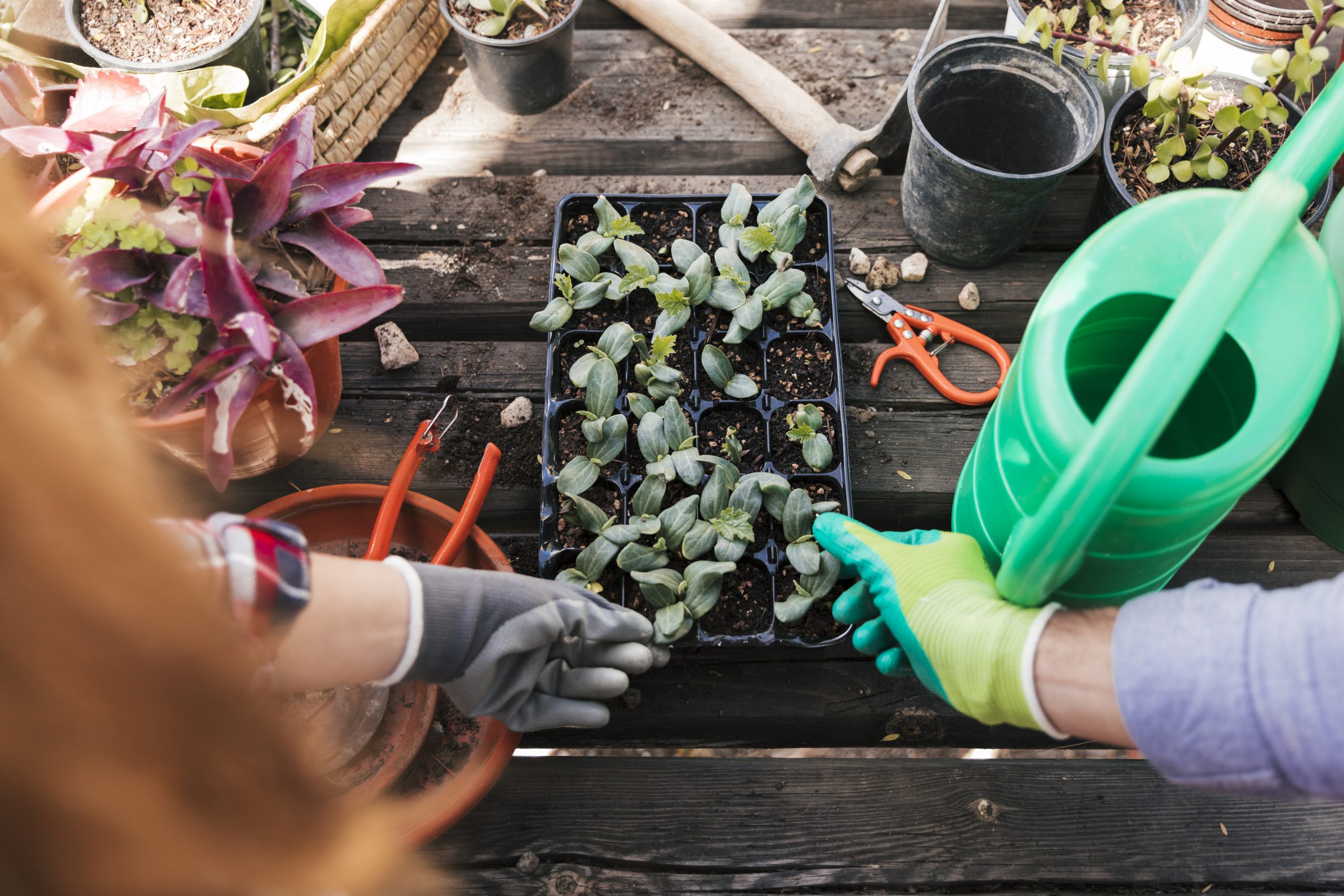Dealing with pests in the garden is a challenge, but using chemical pesticides can harm the environment and beneficial insects. Fortunately, there are many natural and effective ways to manage garden pests. Here’s a guide to help you keep your garden healthy and pest-free without harming the ecosystem.
1. Use Companion Planting to Repel Pests
Companion planting involves pairing certain plants together to naturally repel pests. Some plants have scents or compounds that deter specific insects. Try these pairings:
- Marigolds with tomatoes: Marigolds help repel aphids and nematodes.
- Basil with peppers: Basil repels mosquitoes and flies.
- Garlic with carrots: Garlic can deter carrot flies.
- Nasturtiums with cucumbers: Nasturtiums are great at attracting aphids away from cucumbers.
By mixing plants that have pest-repelling properties, you can naturally reduce pest problems.
2. Introduce Beneficial Insects
Encourage natural predators to control pests in your garden. Some insects, like ladybugs, are known for their ability to eat aphids, while others can help manage caterpillar infestations. Here are a few to consider:
- Ladybugs: Eat aphids and other soft-bodied insects.
- Lacewings: Feed on aphids, caterpillars, and mealybugs.
- Predatory beetles: Help manage beetle pests like Colorado potato beetles.
- Parasitic wasps: Target pest larvae and eggs.
By attracting these helpful insects, you can reduce the number of harmful pests in your garden.
3. Homemade Organic Sprays
A variety of homemade sprays can help repel pests without the need for chemicals. Here are a few simple recipes to try:
- Garlic Spray: Blend garlic with water and strain it. Spray this mixture on leaves to repel aphids, spider mites, and beetles.
- Neem Oil Spray: Neem oil acts as an insect repellent and disrupts pest growth. Mix with water and spray directly onto affected plants.
- Soap Spray: Mix 1 tablespoon of dish soap with 1 quart of water and spray it on aphids, whiteflies, and mites.
These organic sprays are safe for both plants and pollinators but work effectively against a variety of pests.
4. Physical Barriers and Traps
Sometimes, the best solution is to physically keep pests away from your plants. Use the following techniques:
- Row covers: Protect plants from flying insects like moths and beetles by draping fine mesh covers over them.
- Sticky traps: Place yellow sticky traps around your garden to capture flying pests like aphids and whiteflies.
- Copper tape: Place copper tape around plant pots to deter slugs and snails.
- Handpicking: Manually remove larger pests such as caterpillars and beetles from plants.
Physical barriers and traps can reduce pest damage without chemicals and are a great option for organic gardeners.
5. Maintain Garden Hygiene
Regularly cleaning your garden can prevent the buildup of pests. Here’s how:
- Remove dead plants: Dead plant material can attract pests and provide hiding spots.
- Clear weeds: Weeds can be a host for pests and diseases.
- Keep the soil healthy: Healthy soil promotes strong plants, which are more resistant to pest attacks.
Maintaining good garden hygiene is essential in preventing pest problems before they start.
Final Tips for Pest Control
- Regular Monitoring: Check your plants regularly for signs of pests, such as holes in leaves or discoloration.
- Diversity is Key: A diverse garden with many different types of plants is less likely to attract large numbers of pests.
- Patience and Persistence: Natural pest control methods can take time to show results, so be patient and consistent in your efforts.
By using these natural pest control methods, you can create a thriving garden without resorting to harmful chemicals. 🌿🌸



